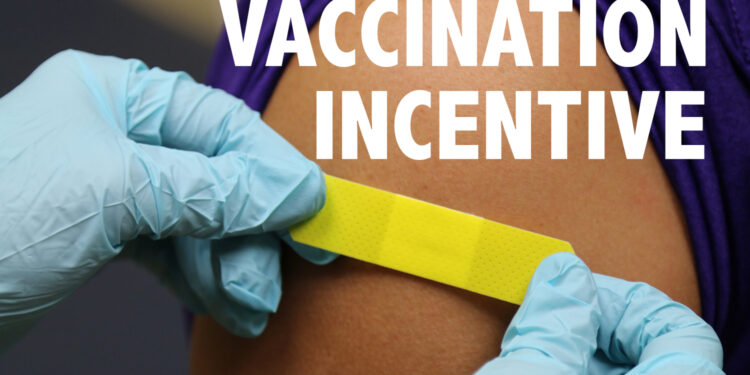“We have to help the citizens but the employees are the ones that provide services to the citizens.” -Principal Chief David Hill
Morgan Taylor/Reporter
OKMULGEE, Oklahoma – A Tribal Employee Vaccine Incentive has been passed by the National Council. The legislation states vaccinated tribal employees will receive a one-time payment.
The initial legislation introduced during a Muscogee (Creek) Nation National Council Emergency Session was sponsored by Representative Charles McHenry, which authorized the expenditure of the American Rescue Plan Act funds for the vaccine incentive.
According to the bill language of NCA 21-093, up to 1,200 Tribal employees would receive $500 for being fully vaccinated by September 30.
The $943,050 funding excludes gaming, health and College of Muscogee Nation employees. The legislation passed in a 10-4 vote during the Aug. 12 session.
Representatives Lucian Tiger III, James Jennings, Joseph Hicks, and Adam Jones II voted against the vaccine incentive original legislation.
The representatives expressed concerns about the COVID-19 Individual Relief Assistance of $2,000.
“I’m not for this bill, I appreciate all our employees and all the risks they take,” Rep. Jennings said. “But we have Creek citizens out there that have been vaccinated and your wanting them to get vaccinated that have to go to a job to provide for their families. The ARP funds come from the Department of Treasury for the citizens, so I feel the every day Creek citizen should be included.”
Rep. William Lowe agreed with Rep. Jennings.
“Initially when I read this, I thought it was a good opportunity to get our employees vaccinated, stepping back and looking at it I would really like to get our citizens funded before we implemented this program,” Rep. Lowe stated.
Rep. Mark Randolph stated in the Aug. 12 Emergency Session that if employees were not able work, then citizens could not receive their ARPA funding.
“If it (COVID-19) broke out here they wouldn’t be able to provide the service to citizens to get their distribution,” Rep. Randolph said.
Principal Chief Hill stated it is his responsibility to protect employees as well as the citizens.
“We have to help the citizens but the employees are the ones that provide services to the citizens,” Hill said.
Secretary of Health Shawn Terry stated at the Emergency Session on August 12, that 90 percent of COVID patient admissions in the Muscogee Nation hospitals are unvaccinated.
“There is only one way out of this and that’s to receive this vaccination ,” Terry said.
He claimed mandating comes with controversial opinions.
“You have people that are anti-vaxxers, people who have religious objections and physical objections,” Terry said. “We hope that incentivizing can be more effective than going to the more drastic measures of mandates and we hope it doesn’t have to come to that.”
According to Terry, 35-45% of citizens within the Muscogee Nation Department of Health System are vaccinated. Hill claimed about 40% of MN employees are vaccinated.
At the time of enactment, the need to amend NCA 21-093 was discussed in order to separate funding sources due to the Nation having only received ARPA funds for citizens.
However, the Nation received additional ARPA funds Aug. 16 based on tribal employment.
The Council held another Emergency Session Aug. 17, which included additional legislation to amend NCA 21-093.
The amendment legislation NCA 21-096 included provisions due to the extra funds received and was passed with a vote of 14-0.
Legislation states any tribal employee or contractor that provides proof of being fully vaccinated by Sept. 30 will receive a one-time payment of $500. Those who are vaccinated between October 1-December 31, will receive a reduced payment of $300.
The Council approved a new budget in the amount of $965,550 for the vaccine incentive to employees. NCA 21-096 also states payments will not begin processing until October 1.
During the Aug. 17 session, Chief and Council both expressed the desire to create legislation for a tribal citizen vaccine incentive, which has not yet been introduced to Council.
To view legislation or listen to the meetings, visit: www.mcnnc.com.





